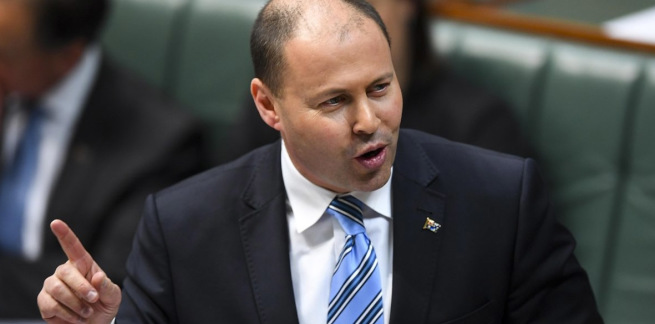New figures released by the Australian Bureau of Statistics (ABS) have shown that the Australian gross domestic product fell 0.3 per cent in seasonally adjusted, chain volume terms in the March quarter 2020.
According to the ABS, the Australian economy was particularly impacted by a number of “significant events” in the quarter, starting with bushfires and other natural disasters, followed by the outbreak of COVID-19 and “the subsequent imposition of restrictions”.
Moreover, growth slowed to 1.4 per cent through the year, the lowest result since the global financial crisis in September 2009 and “well below the long-term average of 3.4 per cent”, according to the ABS. This was largely due to subdued growth in domestic final demand but “reflects a strong contribution from net trade”, according to the ABS.
Chief economist for the ABS Bruce Hockman said: “This was the slowest through-the-year growth since September 2009 when Australia was in the midst of the global financial crisis and captures just the beginning of the expected economic effects of COVID-19.”
Public demand contributed 0.3 percentage point to GDP, driven by a 1.8 per cent rise in government final consumption expenditure
Government spending at all levels increased in response to the bushfires and the management of the COVID-19 pandemic.
While fear of a lockdown saw panic buying of food and household items, total consumption still fell by 1.1 per cent in the quarter.
This marks the largest quarterly decline in consumption in 34 years.
Spending in the most-affected sectors – such as air transport, recreation and culture, cafes and hotels – reported their worst fall on record, according to Treasurer Josh Frydenberg.
However, spending on goods rose, most notably in food and pharmaceuticals, the ABS statistics showed.
Federal Treasurer Josh Frydenberg commented: “It was in this quarter, the March quarter, that consumer and business confidence fell to its lowest level on record.
“The ASX 200 lost a third of its value. And, on the 16th of March, saw its biggest daily fall of 9.7 per cent,” he noted.
Australia now in recession
At a media briefing on Wednesday (3 June), Mr Frydenberg was asked if Australia is in recession today, to which he replied: “Well, the answer to that is yes. And that is on the basis of the advice that I have from the Treasury department about where the June quarter is expected to be.”
He said: “Based on what we know from Treasury, we’re going to see a contraction in the June quarter, which is going to be a lot more substantial than what we have seen in the March quarter.
“The finance minister and I will be providing a detailed update on the economic numbers now in July as opposed to June.”
The technical definition of a recession is two consecutive quarters of contraction, so confirmation will not be had until the June quarter figures are released.
However, while the federal Treasurer remarked that the country was in recession now, he noted that the country was less impacted than other countries overseas.
For example, he highlighted that the impact in the March quarter was not as bad as it could have been given the bushfires and droughts last summer.
He said: “When combined with the ongoing drought, which saw farm GDP fall by 2.4 per cent in the quarter, and the devastating impact of the fires that were raging across many states – one looks back on the March quarter and there wasn’t much good news.
“Seen in this context, the fact that the Australian economy only contracted by 0.3 per cent shows the Australian economy’s remarkable resilience.”
He noted that Australia’s performance in the March quarter “compares very well” to other nations with negative growth, including China (9.8 per cent), France (5.3 per cent), Germany (2.2 per cent), UK (2.0 per cent) and the United States (1.2 per cent).
Mr Frydenberg said: “Today’s national accounts show, once again, in the face of a one-in-hundred-year global pandemic, the Australian economy has been remarkably resilient.
“We entered this economic crisis and this health crisis from a position of economic strength... Growth was rising, unemployment had fallen to 5.1 per cent in January, 1.5 million jobs had been created, and the budget was back in balance for the first time in 11 years.
“This strength gave us the fiscal firepower to respond as we have done – around $260 billion in economic support, or the equivalent of more than 13 per cent of GDP.”
He continued: “We are not through this crisis, as yet. And there will be some difficult days ahead. But our nation – working across geographical and political boundaries – has made great progress.
“Having withstood flood, fire, drought and now the coronavirus pandemic, Australians have shown a unity and purpose which has enabled us to make significant progress and for which all Australians can be very proud and very confident about their future.”
More to come.
[Related: GDP exceeds expectations but heading negative]
